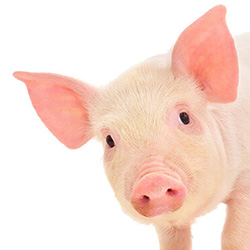
You Shall Not Covet
2Samuel 11:1-17
„In the spring of the year, the time when kings go out to battle, David sent Joab, and his servants with him, and all Israel. And they ravaged the Ammonites and besieged Rabbah. But David remained at Jerusalem. It happened, late one afternoon, when David arose from his couch and was walking on the roof of the king's house, that he saw from the roof a woman bathing; and the woman was very beautiful. And David sent and inquired about the woman. And one said, "Is not this Bathsheba, the daughter of Eliam, the wife of Uriah the Hittite?" So David sent messengers and took her, and she came to him, and he lay with her. (Now she had been purifying herself from her uncleanness.) Then she returned to her house. And the woman conceived, and she sent and told David, "I am pregnant." So David sent word to Joab, "Send me Uriah the Hittite." And Joab sent Uriah to David. When Uriah came to him, David asked how Joab was doing and how the people were doing and how the war was going. Then David said to Uriah, "Go down to your house and wash your feet." And Uriah went out of the king's house, and there followed him a present from the king. But Uriah slept at the door of the king's house with all the servants of his lord, and did not go down to his house. When they told David, "Uriah did not go down to his house," David said to Uriah, "Have you not come from a journey? Why did you not go down to your house?" Uriah said to David, "The ark and Israel and Judah dwell in booths, and my lord Joab and the servants of my lord are camping in the open field. Shall I then go to my house, to eat and to drink and to lie with my wife? As you live, and as your soul lives, I will not do this thing." Then David said to Uriah, "Remain here today also, and tomorrow I will send you back." So Uriah remained in Jerusalem that day and the next. And David invited him, and he ate in his presence and drank, so that he made him drunk. And in the evening he went out to lie on his couch with the servants of his lord, but he did not go down to his house. In the morning David wrote a letter to Joab and sent it by the hand of Uriah. In the letter he wrote, "Set Uriah in the forefront of the hardest fighting, and then draw back from him, that he may be struck down, and die." And as Joab was besieging the city, he assigned Uriah to the place where he knew there were valiant men. And the men of the city came out and fought with Joab, and some of the servants of David among the people fell. Uriah the Hittite also died.”
In this story, David committed several sins, and there were plenty of consequences. David was initially a man living a simple life, a shepherd and the youngest of his brothers. We could say that he did not have a great career ahead of him, yet God made him the king of Israel and gifted him with many things. For example, with wives and children. He was not lacking in this, yet he took what he was forbidden from:
Exodus 20:17
„You shall not covet your neighbor's house; you shall not covet your neighbor's wife, or his male servant, or his female servant, or his ox, or his donkey, or anything that is your neighbor's.”
David did not act suddenly, he first found out who this woman was. They made it known that she was married, moreover, she was the wife of one of David's best warriors: the wife of Uriah.
David did not commit a sin in that he walked on the roof of the king's house, he did not go to look at the naked women. Nor did he commit a sin in that he inquired about her, because if she had been unmarried, he could have married her without sin. However, the sin was conceived in David, that after he found out that the woman had a husband, he did not get over his wish.
This story of David shows very precisely that desire can pull a person deeper and deeper, committing sin after sin. It started with a wish, then he broke up a marriage, he tried to hide it with all his might, and killed Urias. James' words come to mind:
James 1:14-15
„But each person is tempted when he is lured and enticed by his own desire. Then desire when it has conceived gives birth to sin, and sin when it is fully grown brings forth death.”
It also started with a wish for David, but ended with the death of Urias. The story of Cain and Abel also shows this:
Genesis 4:3-8
„In the course of time Cain brought to the LORD an offering of the fruit of the ground, and Abel also brought of the firstborn of his flock and of their fat portions. And the LORD had regard for Abel and his offering, but for Cain and his offering he had no regard. So Cain was very angry, and his face fell. The LORD said to Cain, "Why are you angry, and why has your face fallen? If you do well, will you not be accepted? And if you do not do well, sin is crouching at the door. Its desire is for you, but you must rule over it." Cain spoke to Abel his brother. And when they were in the field, Cain rose up against his brother Abel and killed him.”
Cain also made a sacrifice to God, let's not forget that. So Cain sought God, but not as much as Abel. Abel brought the best to God, but Cain did not. Cain knew that no one would eat the fruits of the earth that he brought to God, so he brought the lower quality ones (Book of Jasher). Abel, on the other hand, did not consider this, he gave the best sacrifice to God.
It would have been important for Cain that God would accept his sacrifice, which is why we read that he was angry. Perhaps the fact that his face is fell shows that he has not eaten for days and the weight loss was also visible on his face. Cain was not only annoyed, he was also tormented with sadness. But instead of correcting his actions and settling his relationship with God, he decided on another solution: if he kills his brother, he can take his place! There will be no competition for Kain. In their story, too, it began with a wish (Cain fought for God's acceptance), but when it is fully grown, brought forth death, the death of Abel.
But there is something else that is very important to remember, a lawfulness: the harvest. The story of David and Cain did not end with them killing, but with paying for their sins. David's child who was conceived in adultery died, domestic violence occurred (Ammon raped his sister, then Absalom killed Ammon for this), Absalom's son infected David's wives, and at the same time took the kingdom from David, and finally Absalom died.
Cain was marked by God, He made him a fugitive on the earth, and then Lamech killed Cain - albeit unintentionally (Book of Jasher).
Most Christians live their lives in the belief that, having been forgiven by God, they do not have to reap the consequences of their sins. However, they have to reap, which is why they stand bewildered when various disasters strike their lives, even though they pray, believe and trust. After David's crimes, the prophet Nathan confronted him with his sins and said something very important that every Christian could learn from:
2Samuel 12:13-14
„David said to Nathan, "I have sinned against the LORD." And Nathan said to David, "The LORD also has put away your sin; you shall not die. Nevertheless, because by this deed you have utterly scorned the LORD, the child who is born to you shall die."”
We know very well that God only forgives sins where there is repentance (and abandonment of sins). In other words, David had already arranged this with God in prayer and he presented a sin offering, but regardless, he still had to reap what he sowed.
Antal Farkas
(February 11, 2023)





